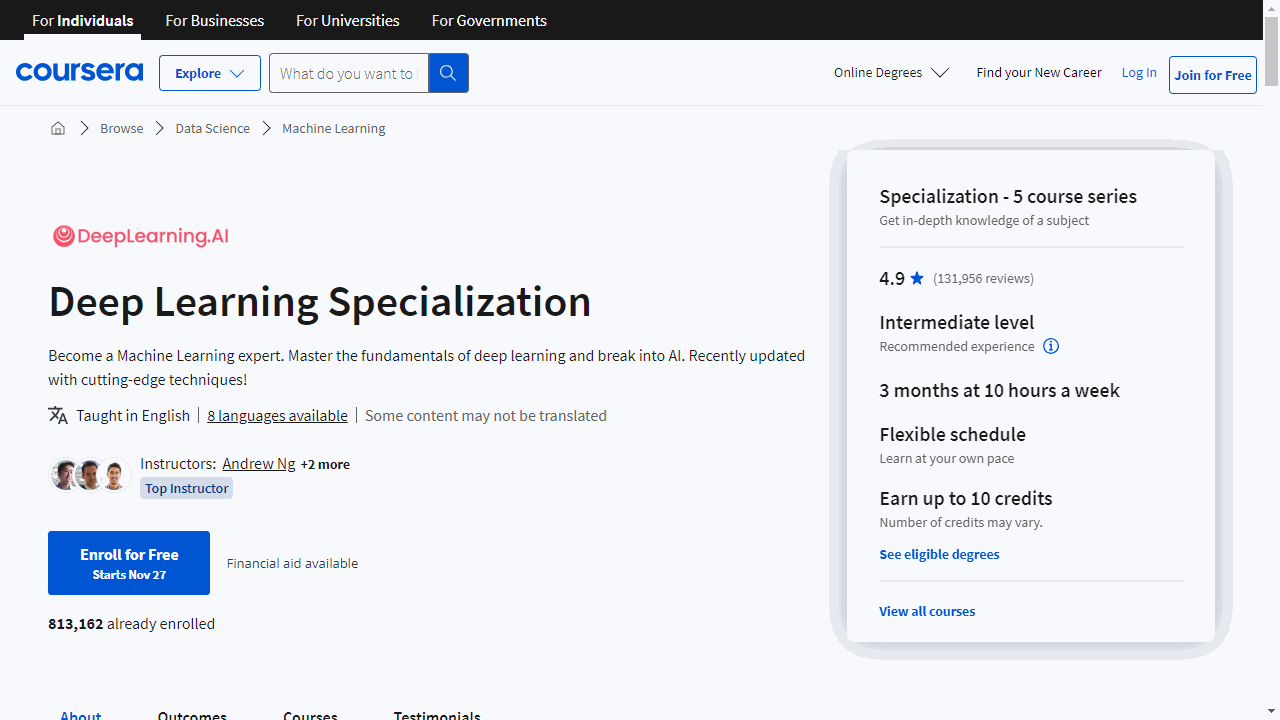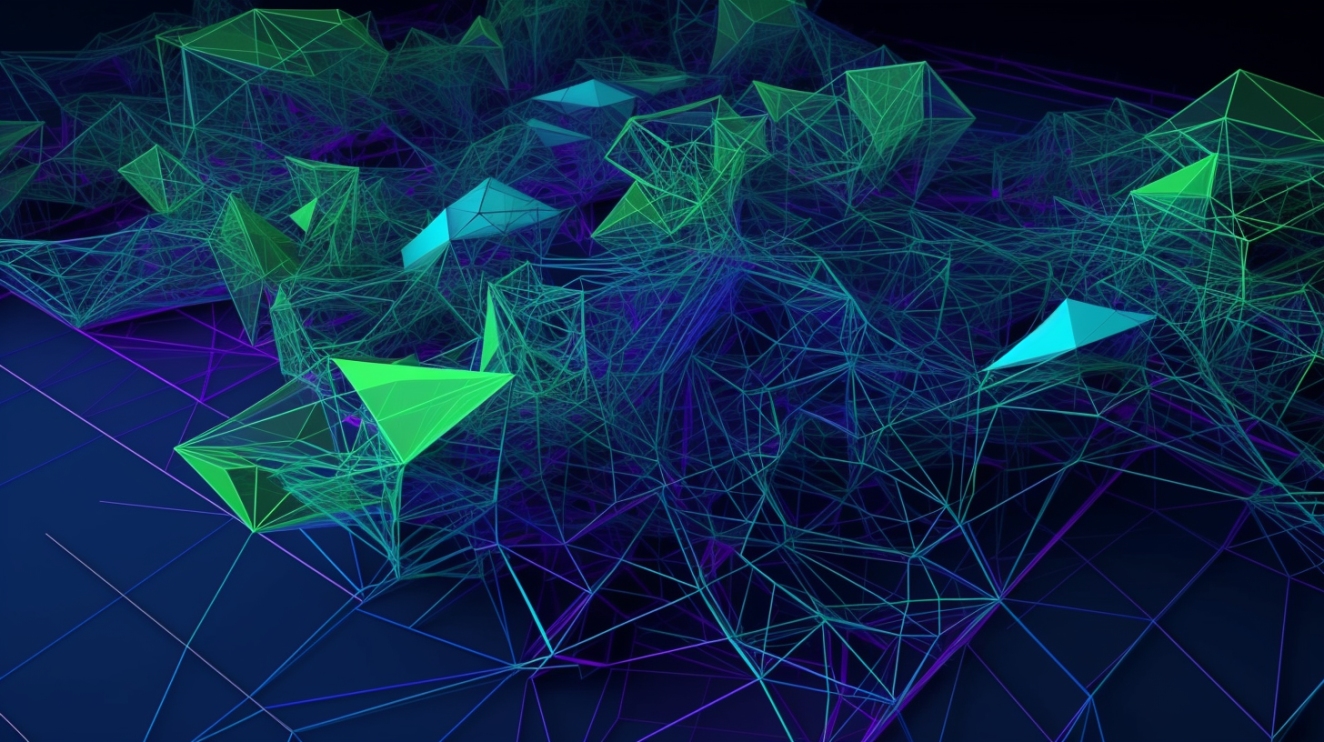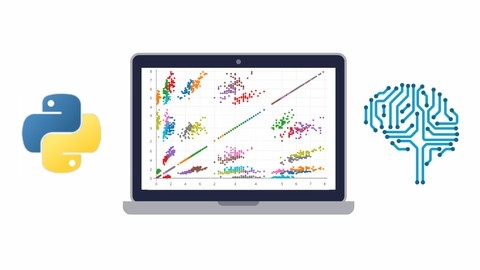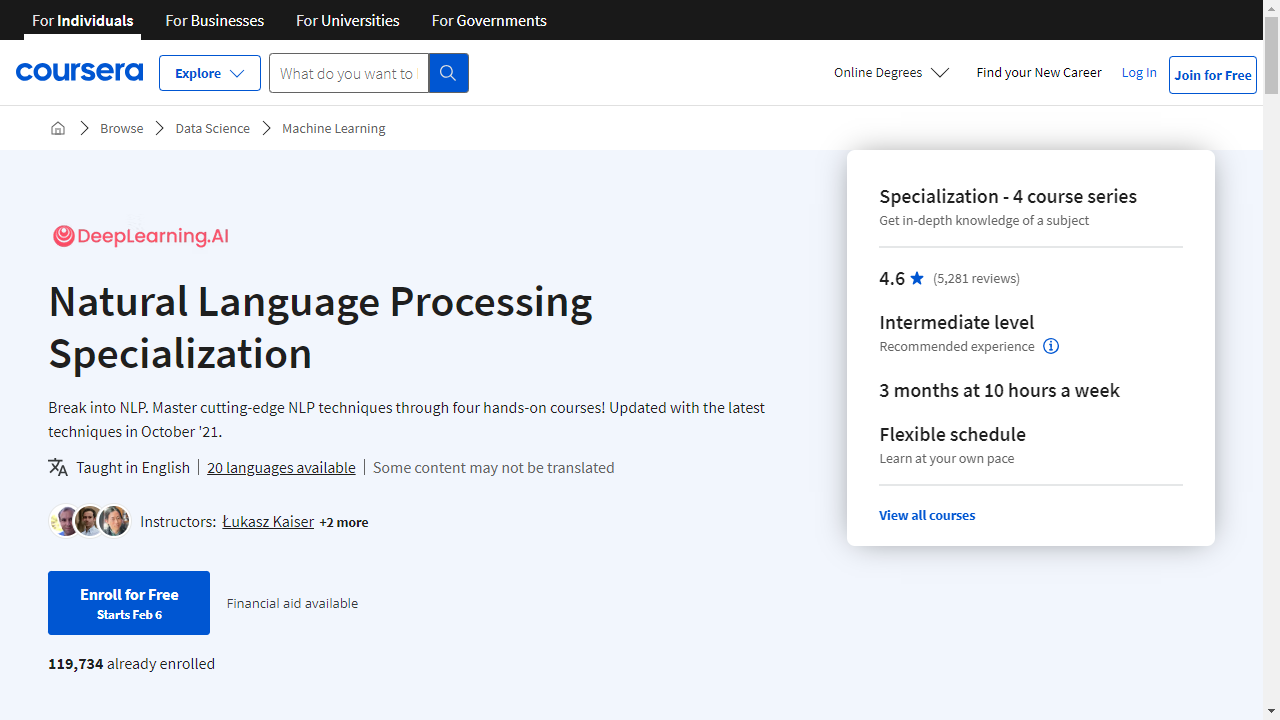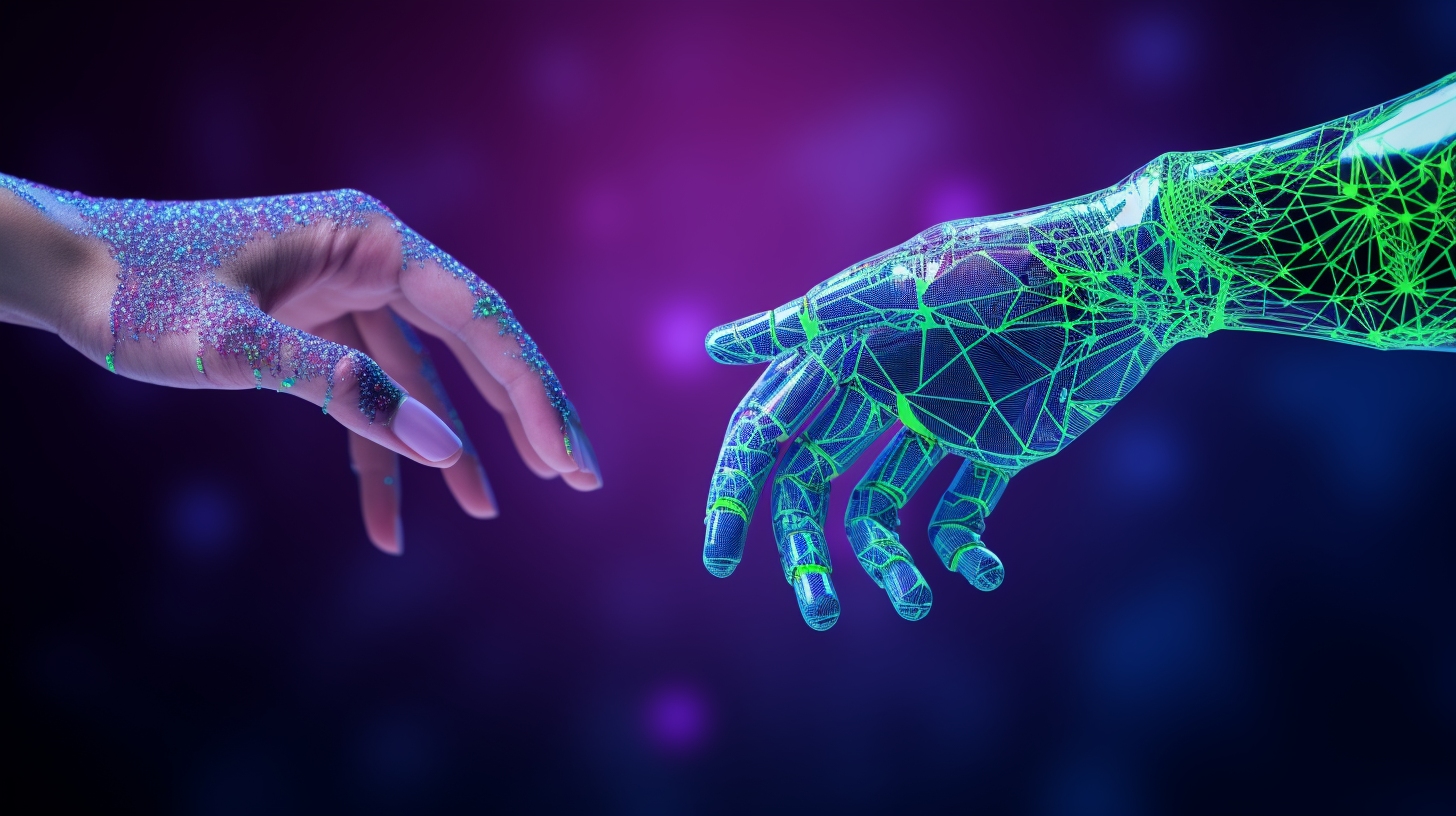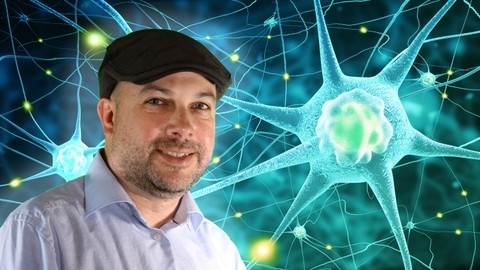Machine learning is a rapidly growing field that’s transforming industries across the globe.
From self-driving cars to personalized recommendations, machine learning algorithms are powering innovative solutions to complex problems.
By understanding the principles of machine learning, you can gain valuable skills that are in high demand across various sectors, including technology, finance, and healthcare.
Whether you’re a seasoned programmer or just starting your journey in data science, mastering machine learning can open doors to exciting career opportunities and empower you to build intelligent systems that shape the future.
Finding a high-quality machine learning course that provides a solid foundation and practical experience can be a daunting task.
With numerous options available, it’s easy to feel overwhelmed and unsure where to start.
You’re looking for a course that not only covers the theoretical concepts but also provides hands-on projects and real-world applications to solidify your understanding.
We’ve reviewed countless courses and based on our analysis, Machine Learning Specialization offered by Stanford Online and DeepLearning.AI on Coursera is the best course overall.
Taught by Andrew Ng, a leading figure in the field of AI, this specialization provides a comprehensive introduction to machine learning, covering both theoretical foundations and practical applications.
You’ll learn essential algorithms, build your own models, and gain experience with popular tools like TensorFlow.
But the world of machine learning education doesn’t end there.
If you’re looking for something more specific to your needs or learning style, we’ve compiled a list of other excellent courses that cater to various levels and interests.
Keep reading to discover more options and find the perfect machine learning course to embark on your learning journey.
Machine Learning Specialization
Provider: Coursera
This specialization, offered by Stanford Online and DeepLearning.AI, is taught by Andrew Ng, a leading figure in the field of AI.
Ng has worked with companies like Google Brain, Baidu, and Landing.AI, bringing a wealth of experience to the program.
You will begin your journey by learning the fundamentals of machine learning using Python and popular libraries like NumPy and scikit-learn.
You will build your first machine learning models, using linear regression to predict outcomes and logistic regression to classify data.
Next, you will explore more advanced algorithms, including neural networks, which you will build using TensorFlow.
The curriculum also covers decision trees, tree ensembles like random forests and boosted trees (including tools like Xgboost).
This is where you start building more complex models and learn to make sure they work well with real-world data.
The specialization doesn’t neglect unsupervised learning.
You will learn about clustering, a technique for grouping similar items, and anomaly detection, which can help identify unusual data points.
You will even learn how to build recommender systems, similar to those used by Netflix and Amazon, using collaborative filtering and content-based deep learning.
You will also get a taste of reinforcement learning, training a system to make decisions in complex environments through trial and error.
Introduction to Machine Learning with Pytorch Nanodegree
Provider: Udacity
In this course, you will begin with the fundamentals of Machine Learning, exploring both supervised and unsupervised learning.
You will master concepts like linear regression, logistic regression, and decision trees, and become proficient in powerful techniques like Naive Bayes and Support Vector Machines.
The course utilizes Python and PyTorch, teaching you to evaluate and fine-tune models for optimal performance.
As you progress, you will gain hands-on experience with PyTorch in the Neural Networks section.
You will learn to implement Gradient Descent and train neural networks for diverse tasks, delving into the world of deep learning and building your own image classifier.
Next, you will dive into Unsupervised Learning, exploring clustering techniques for grouping data points based on similarities.
You will also master dimensionality reduction techniques like PCA and ICA, essential for handling high-dimensional data.
These techniques are highly valuable for applications like customer segmentation and trend identification.
Throughout the course, you will work on practical projects that directly apply your learned skills to real-world problems.
For instance, you’ll identify potential donors for a charity and cluster customers based on their purchasing patterns, gaining experience with building recommendation systems.
You will also have access to supplemental material on Statistics, Linear Algebra, Python for Data Visualization, and SQL, further bolstering your data analysis skills.
Career advice is also provided, including guidance on enhancing your LinkedIn and GitHub profiles, equipping you for a successful career in machine learning.
You’ll even learn the essentials of using Git and GitHub for version control – a critical skill for any data science project.
Machine Learning A-Z: AI, Python & R + ChatGPT Prize [2024]
Provider: Udemy
This course guides you through the exciting world of machine learning, from the basics to advanced concepts.
You’ll begin by mastering data preprocessing, a vital step in readying your data for analysis.
This includes techniques like handling missing data, transforming categorical data, and scaling features to optimize your models.
You’ll then explore regression techniques like simple linear regression and progress to more complex methods like polynomial and support vector regression.
Through these, you’ll learn to build models that can predict things like stock prices or assess risk.
You’ll dive into the world of classification, learning algorithms such as logistic regression, K-Nearest Neighbors, and Support Vector Machines.
Understanding how to evaluate these models using techniques like a confusion matrix, accuracy paradox, and the CAP curve is also covered.
The course then introduces you to clustering techniques, which are used to group similar data points.
You’ll explore methods like K-Means clustering, where you divide data into a specific number of groups, and hierarchical clustering, which creates a hierarchy of groups based on their similarities.
You’ll also discover association rule learning with algorithms like Apriori and Eclat, used to uncover patterns in data, which can be applied to build recommendation systems or improve marketing strategies.
You’ll then delve into reinforcement learning, a type of machine learning that trains algorithms to learn from their environment.
You’ll explore the multi-armed bandit problem, a classic reinforcement learning scenario, and use algorithms like Upper Confidence Bound (UCB) and Thompson Sampling to solve it, a concept highly relevant to areas like online advertising.
Finally, you’ll explore the world of deep learning, where you’ll learn about artificial neural networks, including convolutional neural networks, which are particularly powerful for image recognition tasks.
Deep Learning Specialization
Provider: Coursera
This five-course program takes you on a journey, starting with the ABCs of neural networks and gradually guiding you toward sophisticated concepts like convolutional neural networks and sequence models.
You’ll begin by building and training deep neural networks, getting comfortable with TensorFlow, and understanding the building blocks of a network’s architecture.
You’ll then discover the secrets to fine-tuning your models for better performance.
Think of it like learning how to tune a musical instrument to get the best sound possible.
You’ll explore techniques like hyperparameter tuning, regularization, and optimization algorithms to make your deep learning models top-notch.
As you progress, you’ll dive into the strategies behind successful machine learning projects.
Imagine being able to pinpoint and fix errors in your models like a seasoned detective, or knowing how to prioritize tasks to boost your model’s accuracy.
You’ll learn how to navigate tricky scenarios and even reach a level of performance that rivals human capabilities.
The specialization then unveils the fascinating realm of computer vision and sequence models.
You’ll build convolutional neural networks, the engines behind applications like self-driving cars and facial recognition.
You’ll also learn about sequence models, which power technologies like voice assistants, machine translation, and chatbots.
You’ll explore recurrent neural networks (RNNs) and their variations, understand how words are represented in a computer’s “mind” (Word Embeddings), and work with advanced tools like HuggingFace tokenizers and transformer models.
Deep Learning Nanodegree
Provider: Udacity
The Udacity Deep Learning Nanodegree equips you with the skills to build cutting-edge AI systems.
You start with the fundamentals of deep learning, understanding how it works and how to minimize errors using gradient descent.
You then move on to building neural networks, a core concept in deep learning, even learning to develop a handwritten digits classifier using PyTorch, a powerful Python library.
You explore convolutional neural networks (CNNs), a type of neural network designed for image data.
This includes understanding CNN concepts, building your own CNNs, and using techniques like transfer learning and autoencoders.
You also get to experiment with object detection, image segmentation, and landmark classification and tagging, commonly used in social media.
Next, you tackle recurrent neural networks (RNNs) and transformers, which are great for working with sequential data like text.
You learn about LSTMs, a type of RNN, and how transformers can be used for text translation and sentiment analysis.
Finally, you explore generative adversarial networks (GANs), a powerful technique that allows you to create new data, like realistic images.
You learn about GANs, how to train them, and how to apply them to image-to-image translation and face generation.
The course doesn’t neglect the practical aspects of your journey.
You learn how to optimize your LinkedIn and GitHub profiles to attract potential employers, ensuring you are well-prepared to launch your career in this exciting field.
Python for Data Science and Machine Learning Bootcamp
Provider: Udemy
This Python for Data Science and Machine Learning Bootcamp on Udemy equips you with the tools and knowledge to kickstart a data science career.
You’ll begin by setting up your coding environment with Anaconda and Jupyter Notebook.
This foundation will allow you to grasp Python fundamentals, including data types and control flow, through an immersive crash course.
The course then introduces the powerhouses of data science: NumPy and Pandas.
You’ll master the art of data manipulation with NumPy arrays and dive into complex dataset analysis using Pandas DataFrames.
You’ll learn to present your findings visually using Matplotlib and Seaborn, creating insightful charts and graphs.
Get ready to explore machine learning algorithms such as linear regression, logistic regression, K Nearest Neighbors, and Decision Trees.
You’ll discover how to train these models using Scikit-learn to make predictions and evaluate their accuracy.
The journey continues into the world of deep learning with TensorFlow and Keras.
You’ll gain a strong understanding of Artificial Neural Networks (ANNs) and utilize them to build sophisticated predictive models.
Finally, you’ll explore the realm of Big Data and Spark with Python.
You’ll learn how to leverage Amazon Web Services (AWS) to establish a Spark cluster and process massive datasets using PySpark.
This course provides hands-on experience through real-world projects in finance and healthcare, solidifying your understanding and preparing you to apply your skills confidently.
Natural Language Processing Specialization
Provider: Coursera
This Natural Language Processing Specialization on Coursera teaches you how to build applications that understand and interact with human language, which is a pretty big deal these days.
The specialization starts with the basics.
You learn how to analyze the sentiment of text using techniques like logistic regression and Naive Bayes.
You even get to build a simple translation algorithm.
As you progress, you dive deeper into topics like dynamic programming, hidden Markov models, and the fascinating world of neural networks.
You’ll work with Word2Vec models, create auto-correct algorithms, and explore how machines can understand the relationships between words.
Things get really interesting when you start working with recurrent neural networks (RNNs), particularly LSTMs and GRUs.
You’ll use these powerful tools for tasks like sentiment analysis, text generation (imagine creating Shakespeare-like text!), and named entity recognition.
You learn how to compare questions with different wording to see if they have the same meaning – a core aspect of building smart search engines.
The final part of the specialization focuses on attention models, a cutting-edge area of NLP.
You learn how to build models that translate complete sentences, summarize large chunks of text, and even answer your questions, just like a chatbot.
You even get to work with state-of-the-art models like T5, BERT, and Reformer – tools that are changing the landscape of how we interact with language.
This specialization requires you to know a bit of machine learning, Python, and some math (calculus, linear algebra, and statistics), but if you’re serious about mastering NLP, this course equips you with the knowledge and hands-on experience you need.
Artificial Intelligence Nanodegree
Provider: Udacity
Udacity’s Artificial Intelligence Nanodegree is a great way to learn about the exciting world of artificial intelligence.
You’ll learn from AI leaders, including Sebastian Thrun, founder of Google X, and Peter Norvig, Director of Research at Google.
They, along with Thad Starner of Georgia Tech’s Contextual Computing Group, bring their expertise to this exciting program.
The program starts with the basics, showing you how to build a Sudoku solver using constraint satisfaction problems.
You then move on to classical search, exploring uninformed and informed search strategies.
You will learn how to create AI agents that use symbolic logic and reasoning to plan and solve tasks through automated planning.
You can then explore optimization problems using algorithms like hill climbing and genetic algorithms.
You will also learn how to build agents that can play games like chess using adversarial search with minimax search.
You learn about probabilistic graphical models, including Naive Bayes and Hidden Markov Models, using them for real-world tasks like building a spam classifier and a part-of-speech tagger.
This comprehensive program provides you with a strong foundation in AI and helps you develop the skills necessary to succeed in this rapidly growing field.
Machine Learning, Data Science and Generative AI with Python
Provider: Udemy
This Machine Learning, Data Science and Generative AI with Python course equips you with in-demand skills, guiding you through a practical curriculum.
You’ll start with a Python and statistics refresher, mastering data manipulation with Pandas and visualization with Matplotlib and Seaborn.
The journey then leads you to predictive modeling, exploring linear and polynomial regression and tackling real-world problems like spam classification and hiring prediction.
You’ll delve into the architecture and applications of neural networks, from CNNs for image recognition to RNNs for sentiment analysis, using TensorFlow and Keras.
You’ll build and train models for diverse tasks like handwriting recognition and political affiliation prediction.
The course further challenges you to clean, normalize, and prepare data for analysis, addressing issues like missing data and outliers.
You’ll also learn to combat the “curse of dimensionality” using PCA.
The course doesn’t neglect the world of big data.
You’ll harness Apache Spark to process massive datasets and leverage its MLLib for machine learning at scale.
You’ll also discover techniques for deploying your models into real-time systems and grasp the fundamentals of A/B testing for evaluating their performance.
You’ll even journey into the cutting edge of AI.
You’ll experiment with generative models like VAEs and GANs, creating realistic synthetic images, and explore the architecture of GPT models, the foundation of ChatGPT.
Finally, you’ll put your knowledge to the test with a captivating final project.
You’ll tackle mammogram classification, applying various machine learning techniques learned throughout the course.
The instructor provides a comprehensive solution review, allowing you to compare your approaches and solidify your understanding.
Also check our posts on:
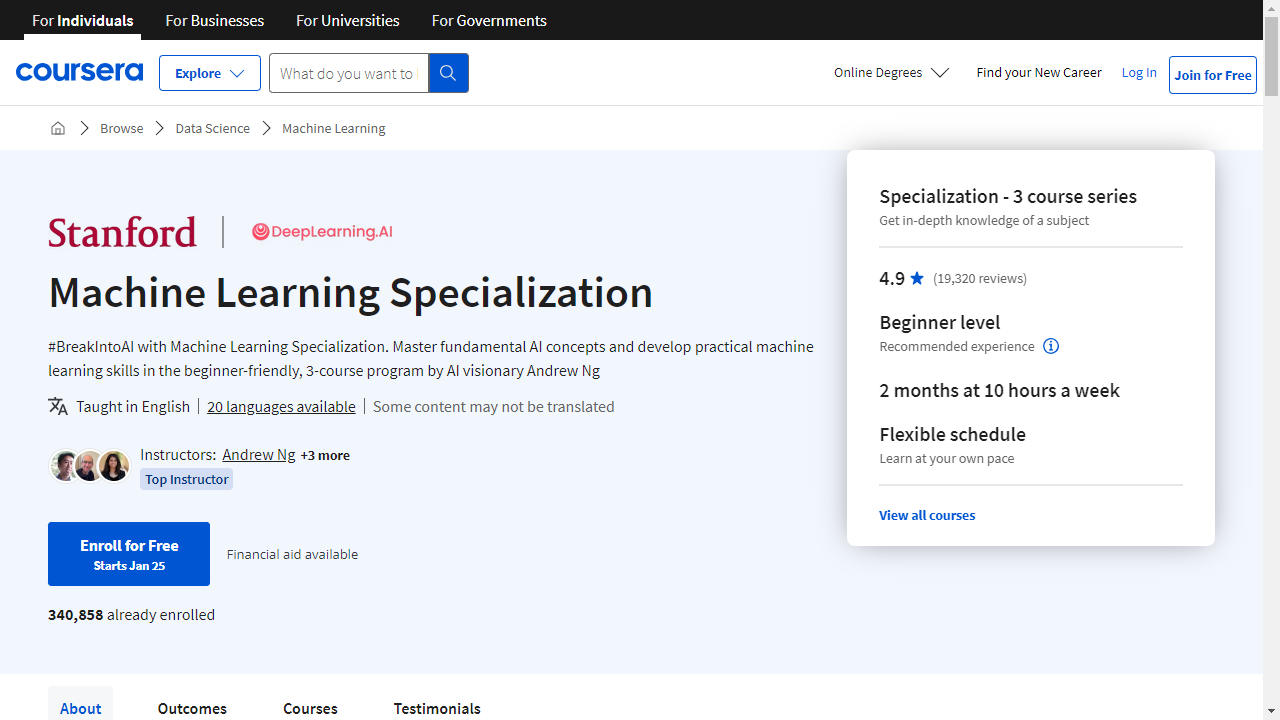


![Machine Learning A-Z: AI, Python & R + ChatGPT Prize [2024]](/img/best-machine-learning-courses-online/950390_MachineLearningA-ZAIPythonRChatGPTPrize2024.jpg)
